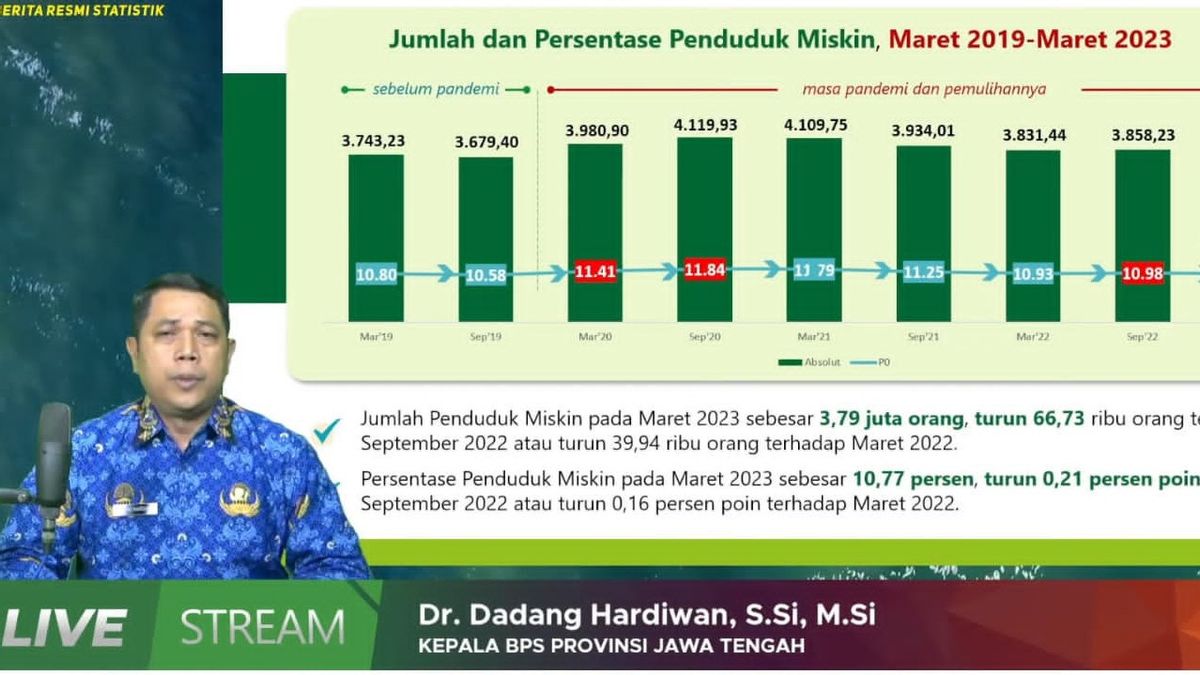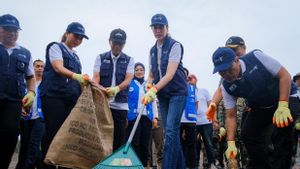JAKARTA - Central Java Governor Ganjar Pranowo succeeded in removing the number of poor people in Central Java to more than 60 thousand people throughout 2023. This can be seen from the Central Java Central Statistics Agency (BPS) report which said that the poor population in Central Java decreased to 3.79 million people in March 2023. In percentage, this number decreased to 10.77 percent or decreased to 0.21 percentage points when compared to September 2022 which reached 10.98 percent or 3.86 million people. Central Java BPS Head Dadang Hardiwan said a positive record of economic improvement, bringing the poverty reduction rate close to before the COVID-19 pandemic. "The number of poor people in Central Java in March 2023 was 3.79 million people. Or decreased by 66.73 thousand people when compared to September 2022. And decreased by 39.94 thousand people when compared to March 2022," Dadang said during a press conference Monday, July 17. Dendang added that along with the easing of the COVID-19 pandemic as well as economic recovery, poverty in Central Java also continued to decline. In addition, during the period September 2022 to March 2023 the inflation rate tended to be low, at 1.30 percent. Meanwhile, in March 2022-September 2022 inflation touched 3.60 percent. Farmers' exchange value also experienced an increase in March 2023 by 107.52 compared to September 2022 by 105.97. In addition, rice production in the First Quarter of 2023 reached 3.28 million tons of Great Giling Graah (GKG), an increase of 1.10 million tons, compared to rice production of the Third Quarter of 2022 as much as 2.18 million tons of GKG. Our record, which contributed to the welfare of the community, such as a decrease in the open unemployment rate (TPT), in February 2023 by 5.24 percent, lower than February 2022 by 5.75 percent," he explained. Dadang said the methodology of poverty measurements using Basic Needs Approach. Through this approach, poverty is seen as the inability to meet the basic food needs and not food as measured by the poverty line.
The English, Chinese, Japanese, Arabic, and French versions are automatically generated by the AI. So there may still be inaccuracies in translating, please always see Indonesian as our main language. (system supported by DigitalSiber.id)













